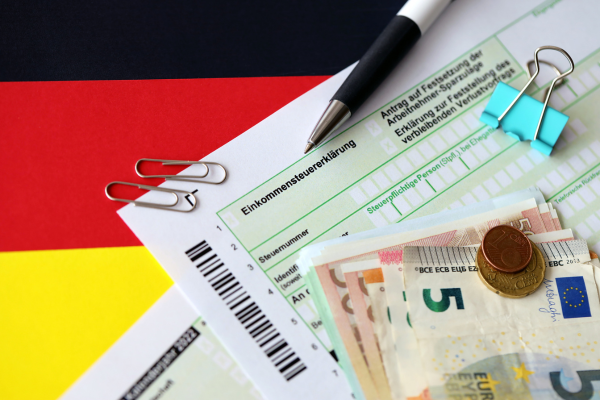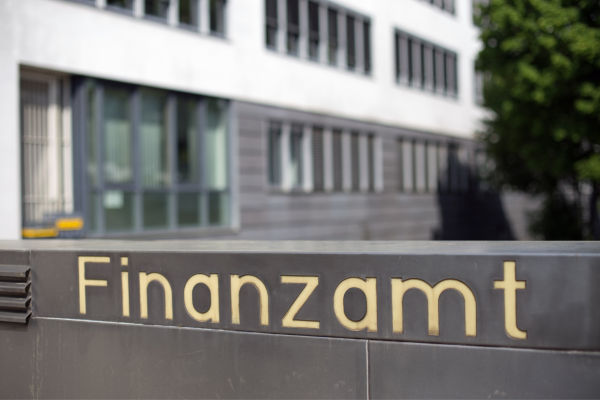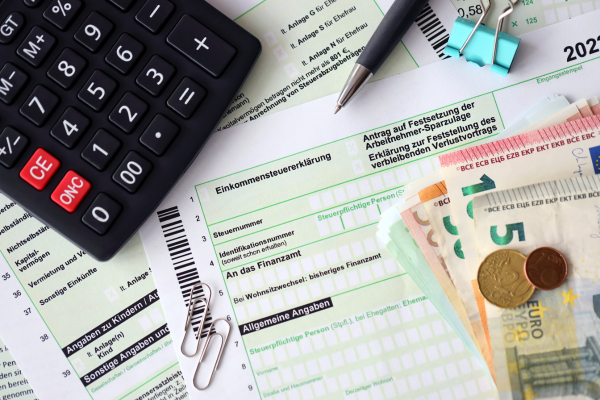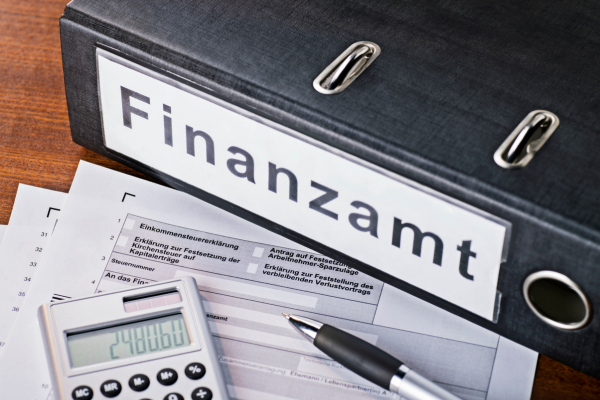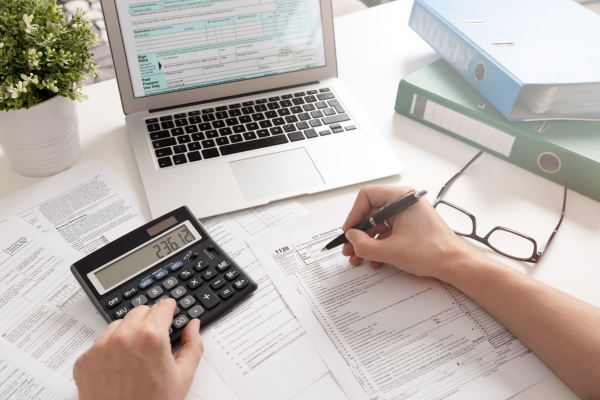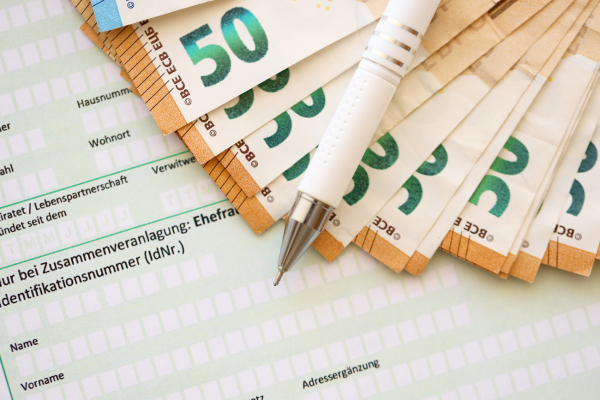Claiming Work-Related Expenses: How to Reduce Your Tax Bill in Germany
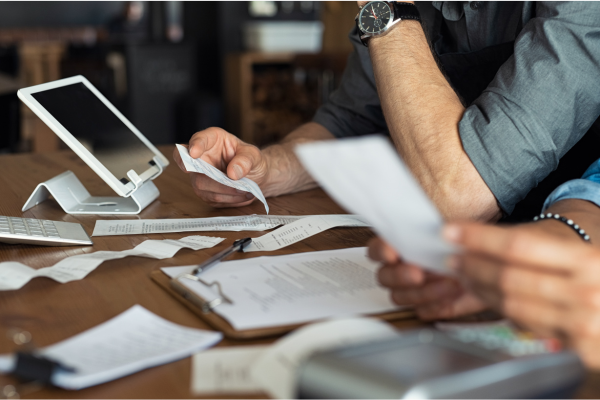
Work-related expenses are some of the most common deductions available to employees in Germany. By properly documenting and claiming these expenses, you can significantly reduce your tax bill. This blog post will guide you through the process of identifying and claiming work-related expenses on your German tax return.
Outline:
- Overview of work-related expenses (Werbungskosten)
- Common work-related deductions (commuting, equipment, training)
- Home office expenses and how to claim them
- Documenting and keeping records of your expenses
- Tips for maximizing your work-related deductions
Overview of Work-Related Expenses (Werbungskosten)
In Germany, work-related expenses, known as “Werbungskosten,” are costs that directly relate to earning your income and can be deducted from your taxable income. These expenses include costs such as commuting to and from work, purchasing work-related equipment, and attending professional training or education courses. By deducting these expenses, you can significantly reduce your taxable income, which in turn lowers your overall tax liability. The German tax system allows for a standard deduction of €1,230 (as of 2023) without needing to provide detailed documentation, but if your actual work-related expenses exceed this amount, it’s beneficial to itemize and claim the higher total.
Common Work-Related Deductions (Commuting, Equipment, Training)
Common work-related deductions in Germany include commuting expenses, work-related equipment, and professional training costs. The commuting allowance (Entfernungspauschale) allows you to deduct €0.30 per kilometer for the distance between your home and workplace, increasing to €0.38 per kilometer for distances beyond 20 kilometers. You can also deduct the cost of purchasing necessary work equipment, such as computers, desks, and other tools essential for your job. Additionally, expenses related to professional training and development, including course fees and travel expenses for attending seminars, can be claimed as deductions. These deductions can be substantial, especially for those who commute long distances or invest in their professional development.
Home Office Expenses and How to Claim Them
If you work from home, you may be eligible to deduct home office expenses from your taxable income in Germany. To qualify, your home office must be a separate room used exclusively for work purposes, and your employer must not provide a suitable workspace. Expenses that can be deducted include a portion of your rent, utilities, and costs for office furniture. Alternatively, if you don’t meet the strict criteria for a traditional home office deduction, you can claim the flat-rate home office allowance of €6 per day worked from home, up to a maximum of 210 days per year. This allowance simplifies the process, allowing remote workers to claim deductions without needing to itemize every expense.
Documenting and Keeping Records of Your Expenses
Accurate documentation is crucial when claiming work-related expenses on your German tax return. You should keep all receipts, invoices, and proof of payment for any expenses you plan to deduct. This includes documentation for commuting costs, work-related equipment purchases, home office expenses, and any professional training you have undertaken. Maintaining organized records ensures that your deductions are accepted by the tax authorities and helps you maximize your tax savings. It’s also advisable to keep these records for several years in case of an audit or review by the tax office.
Tips for Maximizing Your Work-Related Deductions
To maximize your work-related deductions in Germany, it’s essential to be proactive and organized. Start by keeping detailed records of all work-related expenses throughout the year, including small costs that can add up over time. Consider using tax software or consulting with a tax advisor to ensure you’re claiming all eligible deductions. If your total work-related expenses exceed the standard deduction of €1,230, be sure to itemize your deductions to claim the full amount. Additionally, review your expenses annually to identify new deductions, such as costs related to a home office or professional training that can further reduce your taxable income.
Disclaimer:
The information provided in this blog post is for general informational purposes only and does not constitute tax, legal, or financial advice. While we strive to ensure the accuracy and timeliness of the information, tax laws are complex and subject to change. We recommend consulting with a certified tax advisor for advice tailored to your individual circumstances. In terms of financial consultation, we collaborate with German Sherpa Financial Solutions, specializing in services for Expats in Germany. Please note that this content does not serve as tax consulting.
Understanding Tax-Free Allowances and Flat Rates in Germany
Understanding Tax-Free Allowances and Flat Rates in Germany Tax-free allowances and flat rates are essential…
Donations, Insurance, and More: How to Maximize Your Tax Deductions in Germany
Donations, Insurance, and More: How to Maximize Your Tax Deductions in Germany In Germany, certain…
The Complete Guide to Deductible Medical Expenses on Your German Tax Return
The Complete Guide to Deductible Medical Expenses on Your German Tax Return Medical expenses can…
How to Deduct Education and Training Expenses on Your German Tax Return
How to Deduct Education and Training Expenses on Your German Tax Return Investing in education…
Home Office Deduction in Germany: How to Claim It and Maximize Your Savings
Home Office Deduction in Germany: How to Claim It and Maximize Your Savings With the…
Tax Classes in Germany (Steuerklassen): What You Need to Know
Tax Classes in Germany (Steuerklassen): What You Need to Know Germany’s tax system uses tax…
Tax-Free Savings in Germany: Making the Most of Your Allowances
Tax-Free Savings in Germany: Making the Most of Your Allowances Tax-free savings allowances in Germany…
Income Thresholds, Tax-Free Amounts, and Tax Brackets
Income Thresholds, Tax-Free Amounts and Tax Brackets Germany uses a progressive income tax system, which…
Claiming Moving Expenses on Your German Tax Return: What You Need to Know
Claiming Moving Expenses on Your German Tax Return: What You Need to Know Moving for…
How and When to Change Your Tax Class
How and When to Change Your Tax Class Changing your tax class can have a…
How to Deduct Childcare Expenses on Your German Tax Return
How to Deduct Childcare Expenses on Your German Tax Return Raising a child in Germany…
Filing Your Taxes in Germany: Your Options
Filing Your Taxes in Germany: Your Options In Germany, tax returns (Steuererklärungen) are usually due…
Who Can Legally Help You File Your Taxes?
Who Can Legally Help You File Your Taxes? In Germany, only certain professionals are authorized…
Top Strategies to Legally Reduce Your Taxes in Germany
Top Strategies to Legally Reduce Your Taxes in Germany Paying taxes is a part of…
Maximizing Your Tax Refund in Germany: Tips and Tricks for Expats
Maximizing Your Tax Refund in Germany: Tips and Tricks for Expats Getting a tax refund…
How to Optimize Your Tax Class to Save Money in Germany
How to Optimize Your Tax Class to Save Money in Germany Choosing the right tax…
Exploring Tax Deductions: How to Lower Your Taxable Income in Germany
Exploring Tax Deductions: How to Lower Your Taxable Income in Germany Tax deductions are one…
The Best Tax-Saving Strategies for Families in Germany
The Best Tax-Saving Strategies for Families in Germany Families in Germany can take advantage of…
What Can You Deduct? A Comprehensive List of Tax-Deductible Expenses in Germany
What Can You Deduct? A Comprehensive List of Tax-Deductible Expenses in Germany Knowing what expenses…

